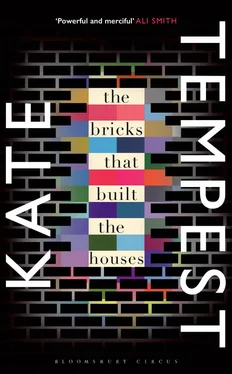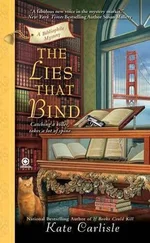He’d taken to wearing shoes with thin metal plates fixed to the heels, so that as he marched down the hushed corridors of the appeal courts, with their mosaic marble floors, his footsteps banged and reverberated off the walls as if an invisible army marched behind him. When he struck down hard enough, sparks flew. The judges in their chambers would send their thin-fingered clerks to see what all the noise was, and they would return, ghostly faced, saying, ‘My Lord, there is a man out there with fire at his feet, a true Daniel come to litigate.’
But all that was in his younger days. His beliefs had lost their potency some time ago, and now all he really cared about was getting home at the end of the day so that he could sit in peace. He had many projects. He was writing a play. He was inventing a synthesiser. He was building a boat in the garage, which some day he planned to sail. He had accepted the wrecked remains from a man who couldn’t pay his fees; it was still mainly a rotten hull but even so, it was his project, and the joy was in the job at hand, not in the thought of finishing. These days he worked in corporate law at a big firm in St Pancras where nobody took him seriously and he got away with not doing too much.
The world in all its frenzied injustice seemed someone else’s problem now. He’d fought the good fight for as long as he could. Raised two children. Buried his parents. Lost the love of his wife. Watched helplessly as his only brother fell into madness and addiction. Saw innocent people go to jail, and guilty people walk free. Felt the shudders cross his palms when murderers returned home to their girlfriends because he’d been their champion.
Even as a boy he’d had a strong sense of right and wrong and would often be called upon to settle disputes in the playground. But as a man now in late middle age, he had no burning sense of injustice left. He was worn out from carrying the hate of the world on his shoulders. He just wanted to build his boat and write his play and invent his synthesiser, and as long as his children were healthy, the world was OK by him. Other people’s pain had lost its potency. The world outside his garage walls was a hideous, feverish mess, and the days of trying to make a difference were far, far behind him.
Pete watches the blue smoke curl like Chinese dragons towards the ceiling. In his hand his phone screen shines, more vivid than the real world; he stares into it at the text message he’s been composing for an hour.
hi its Pete met u yesterday. Wanna hang out later? X
In a wave of conviction he presses send and grins firmly about it. The wave lasts about two minutes, and then breaks, churning and foam-tipped, filling him with sneering doubt. He fidgets in the dim room, stupid, one hand in his boxers, the other pushing against his closed eyes. Shuddering. Twenty minutes pass in stillness. Wrenched and hopeless, he hates himself until he feels the buzz against the mattress, the short stab that sits him up and he sends his hand blindly beneath the duvet.
Yeah. that would be good. I’m working in town till 10. Wanna meet me Soho?
He jumps to his feet and punches the air. Gets a grip. He plays it cool for as long as he can but sends his reply back in a matter of minutes.
I’ll find a bar and text u. 10.15 ? X
He waits, shaking, slapping his cheeks and drumming his belly. Paces the room, distracts himself, flicking through a newspaper that’s on the floor. Time is a revolving door. As it passes he feels increasingly stupid for getting in touch and he begins to hate himself again for everything he’s ever done or said. Flashes of himself in her café, lurking by the counter with nothing to say, make him shake with shame.
The phone buzzes in his hand. He reads:
Very assertive. See you later .
And he is the god of all things.
Becky puts her phone back in her bag and watches the street light opposite. It’s dented in the middle and it’s pouring its cheap orange squash into a puddle on the pavement. A siren rolls a few streets away. A man with a huge moustache and a large fur hat walks past her and his footsteps echo wetly. There is an awning above a shop window across the street and the corner is ripped; its edges are shredded, epileptic in the wind.
She walks into the hotel lobby. It’s bright and wide, the floor is shining like an ice rink, gilded luggage trolleys sit like empty birdcages. The lady at reception perches behind a vast desk, her uniform is light purple and grey. Becky passes the desk, nods at the lady, who stares at her briefly, shuffling paperwork; her nails are filed to triangle points, painted the colour of drying blood. A group is checking in, European, students maybe, they are laughing at something. One has long hair and he throws it around.
She heads for the bar and takes a seat at the furthest-left bar stool. The bar looks out onto the street. Behind the barman the bottles stand far apart on a clean shelf. Everything is symmetrical. There is no dust. All the chairs are square. Everything is light purple and white and grey. Long lines and oblongs. She picks at a loose thread on the knee of her jeans. Pulls it till it’s taut.
She thinks his name to herself. Thinks his shape in the crowd, standing close. Sees his hair and his ear and his neck. It has to be a sign. She presses her palms against the bar top and studies the lines on the backs of her hands. Wonders about the client she is about to meet. Wonders where her mother is right now. Across an ocean, in some epic canyon. The red rock American hills. She wonders if her parents are in contact. Whether they send each other postcards. She can feel them, their presence is stronger today than it has been in years. They are who she is. But she doesn’t even know them. Her mother used to write. Every month, but she told her to stop. She moved flats and wouldn’t tell Paula the new address. She knows Linda keeps the letters. She knows they’re stacked up in a file in the cupboard above the bookcase in Linda’s living room. Maybe she should read them.
She stands up and heads to the bathroom to apply fresh make-up. She passes the window. She can’t take her eyes from the awning. She stares as it flaps in the wind.
As Pete rides the escalator down into the depths of the underground, he feels himself growing uneasy. Underneath the city, there are tunnels, and in those tunnels all the people sit in metal tubes and go to where they need to go . He descends, one level at a time, deeper down, feeling the air change, feeling the heat rise in his cheeks. He takes his coat off and holds it over his arm; he shivers in his shirt, but the sweat is panting in his pores, like runners on the start line, just waiting for the gun to blast.
He boards the tube, treading carefully, and he sits amongst aliens and feels himself dying but focuses on where he is going and what he is going to do and, as he climbs out into the air of Oxford Circus, he is jubilant again. Terrified, but thankfully not bordering on losing it any more. At least, not for the minute.
He walks in and out of seven different bars trying to find the one that feels right.
Eventually he finds a place, a trendy restaurant that’s got a bar in the basement. He heads down the stairs and out into a low-ceilinged room, with an old wooden bar along the wall at the end. The chairs are old cinema chairs, dark purple velvet, threadbare arms. The lighting is dim, groups of drinkers sit and talk over one another, slapping each other’s backs now and then, one or two are drinking alone. Music is playing, Joy Division. He strolls to the bar for a pint.
She sees him on the other side of the room. She hasn’t seen him enough times to know what he really looks like. The shape of his legs, bowed slightly. The back of his head, where his hair stops. Her eyes catch on things as she approaches the bar, the texture of the battered velvet on the chairs, looking as tired as she feels. The people drinking, the lonely-looking man trying not to watch the couple sitting at the next table kissing.
Читать дальше












